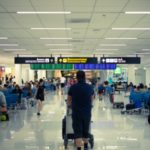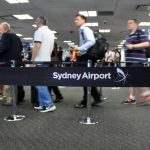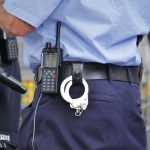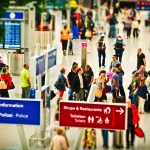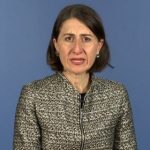Border Force Randomly Seizes and Searches Citizen’s Devices at Sydney Airport
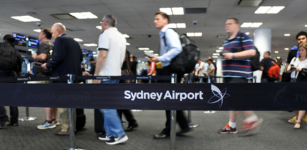
On 16 August, British Australian Nathan Hague was making his way through Sydney airport as he regularly does, when he was randomly stopped by Australian Border Force (ABF) officers who demanded he hand over his smartphone and laptop computer.
The 46-year-old software developer was detained for 90 minutes while officers took his electronic devices into a backroom. The officers refused to answer any of Mr Hague’s questions regarding the search and what they were doing with his devices.
In a video posted to Facebook following the incident, Mr Hague said he believes the officers cracked the password on his laptop and copied the files on both his devices. He suggested software might have been installed on his smartphone.
https://www.facebook.com/nathan.hague.77/videos/2089368004661142/
The ABF has acknowledged searching the devices, but denied it installed any software. “Officers may question travellers and examine goods if they suspect the person may be of interest for immigration, customs, biosecurity, health, law enforcement or national security reasons,” the ABF said.
Rights overridden
“They basically said that they were going to inspect the files for suspicious content,” Mr Hague told Sydney Criminal Lawyers®. “They wouldn’t let me know what the definition of suspicious content was. And they required me to unlock the phone.”
According to Hague, when his phone was returned it was in development mode, which leads him to believe they installed some ability, so they could “wholesale copy the phone content.” He’s unsure whether they installed anything permanent on the phone, but he reformatted it “as a precaution.”
Mr Hague said he asked the ABF officers a series of questions that they flat-out refused to answer. These included whether his files would be copied, how many would be copied, what the ABF data retention policy is and whether his data would be destroyed if no suspicious files were found.
“Every single question I had was met with, ‘It’s covered under the legislation,’” Hague recalled. “They were friendly, but evasive. And I had no opportunity to say no or else I had the threat of detention for up to 90 days.”
Border Force powers
The legislative powers that ABF officers have to search people’s baggage at Australian airports are contained in section 186 of Customs Act 1901 (Cth). These include opening baggage, reading documents, and using an X-ray or detection dog to search baggage.
The Customs Act allows officers to retain an electronic device for up to 14 days if there is no content on the device which renders it subject to seizure. And if it is subject to seizure, the device may be withheld for a longer period.
ABF officers have the power to copy a document if they’re satisfied it may contain information relevant to prohibited goods, to certain security matters or an offence against the Customs Act. A document includes information on phones, SIM cards, laptops, recording devices and computers.
An excessively broad reach
Muslim Legal Network NSW president Zaahir Edries says it’s unfortunate many citizens are unaware of the “extremely broad” ABF search and seizure powers, and in the case of devices, the materials that can be deemed of interest under the “broad category of security/migration/customs interest.”
“Whilst statistics on the number of persons stopped and searched, particularly concerning their electronic items is not readily available,” Mr Edries explained via email, “we hear often of this occurring to people who are often confused as to the reasons for the seizure of their items.”
Mr Edries outlined that this current case is of particular interest, as Mr Hague has pointed out that as officers didn’t acknowledge which data was accessed on these devices, which included “potentially sensitive client data,” it means he’ll need to report the breaches to European authorities.
“Aside from this commercial impact of seemingly unfettered powers by ABF officers, the breach of privacy is extraordinary,” Mr Edries made clear. And he further stated that it’s only Australia amongst leading developed nations that allow customs to have such extensive powers.
Further erosions
However, two days prior to Mr Hague’s Sydney airport incident, Peter Dutton’s Home Affairs super-ministry released new draft legislation that, along with a raft of other draconian measures, will extend the reach of ABF officers even further.
The Assistance and Access Bill amends the Customs Act so that ABF officers will have the ability to request a warrant from a judge, so an individual can be forced to provide access to an electronic device in any location.
The device examination period time frame will be extended from 72 hours to 30 days. And an authorising judge must be satisfied that there are reasonable grounds to suspect that there is, or there will be within the next 72 hours, evidence of criminal activity upon a searched device.
The new legislation increases the penalties that apply for refusing to comply with an order to assist in accessing a device from two years to a maximum penalty of five years for a simple offence and ten years when the order relates to a serious crime.
No protections
Mr Edries pointed out that the reason the ABF is able to have such extensive search powers is that Australia has no federal legislation guaranteeing citizens’ privacy and all other basic rights under the law. Indeed, Australia is the only democratic nation in the world without a bill of rights.
“Without protections in a constitutionally enshrined bill of rights and little willingness for any of the major political parties to address this issue, it seems that these breaches of privacy will continue without restraint or explanation all seemingly in the name of ‘border security,’” he explained.
Since 9/11, more than 70 pieces of legislation have been enacted at the federal level in the name of national security and counterterrorism, which have been incrementally eroding the rights of all Australians.
Pushed into action
Mr Hague said that it appeared to him that the seven ABF officers on duty that day appeared to have just started their shift. And one of them decided to search him as an afterthought, which was perhaps sparked due to the fact that he travels from Thailand often without any checked in baggage.
The invasion of his privacy though has so “incensed and disgusted” Mr Hague that it has turned him politically active. Following the incident, he joined the Science Party, which is a political party that aligns with his own beliefs.
“This whole flybys security theatre is just too much,” he concluded. “We didn’t vote for this. We didn’t ask for this. And it is just too invasive.”


